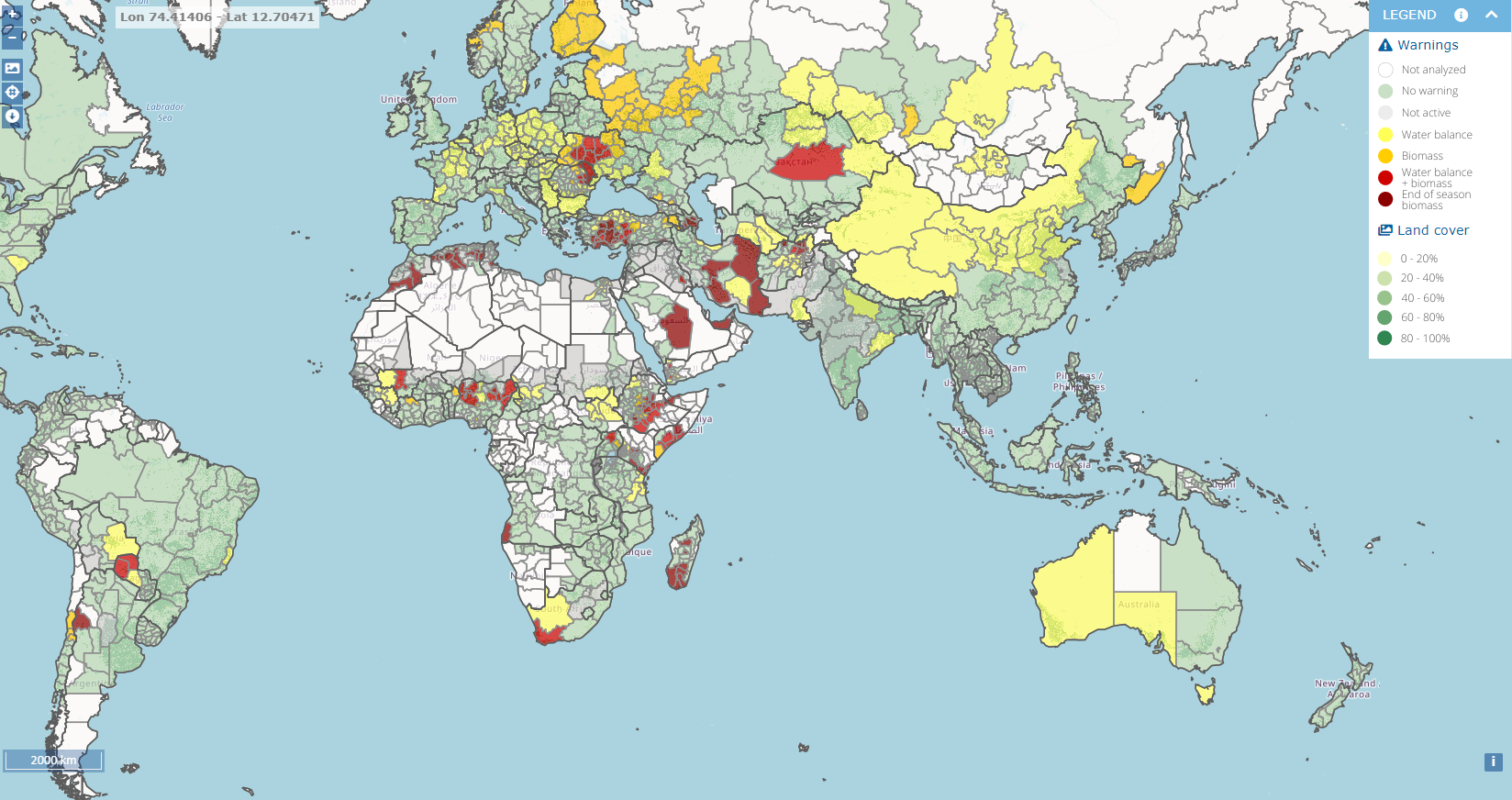The event stimulated discussion on how early warning systems can be further improved while at the same time responding to the increased information needs driven by the ongoing complex crises.
- food safety | food security
- Tuesday 5 July 2022, 13:00 - 14:45 (CEST)
- Online only
Programme
- 5 Jul 2022, 13:00 - 13:05 (CEST)Opening
Raschad Al Khafaji, Director of FAO LOB
- 13:05 - 13:20 (CEST)Short introductions
Maximo Torero, FAO - Chief Economist and
Alan Belward, JRC - Director Sustainable Resources - 13:20 - 13:35 (CEST)Innovative technologies in FAO early warning systems
Zhongxin Chen, FAO Senior Information Technology Officer and Coordinator of the Hand-In-Hand Geospatial platform
Karl Morteo, FAO Information Technology Officer
- 13:35 - 13:50 (CEST)Innovative technologies in JRC early warning systems
Felix Rembold, JRC - Food Security team lead
- 13:50 - 14:00 (CEST)Feedback and reflections by GIEWS
Mario Zappacosta, FAO – Head of GIEWS
- 14:00 - 14:10 (CEST)Feedback and reflections by GEOGLAM
Inbal Becker-Reshef, NASA Harvest - Programme Director
- 14:10 - 14:20 (CEST)Feedback and reflections by IPC
Leila Oliveira, Team Leader of IPC Technical Development, FAO
- 14:20 - 14:35 (CEST)Q&A session
Moderator: Myrto Arvaniti, FAO LOB - Marketing and Communication
- 14:35 - 14:45 (CEST)Wrap up and closing remarks
Willem Olthof, DG INTPA – Deputy Head of Unit Sustainable Agri-Food systems and Fisheries
Practical information
- When
- Tuesday 5 July 2022, 13:00 - 14:45 (CEST)
- Where
- Online only
- Who should attend
- agricultural and food security analysts, academia, civil society
- Languages
- English
- Website
- EU-FAO strategic dialogue
Report

Several speakers stressed the importance of increasing the quality and timeliness of information as well as of improving their predictive capacity. More information is needed in specific areas, including (for example) about pests and diseases.
Finally there was agreement among the panellists that expert knowledge and ground truthing remain fundamental to ensure that innovative sensors and algorithms are properly calibrated and validated.
Knowledge management and communication of scientific evidence also needs more attention.
Opportunities for the FAO and the JRC to work in this direction are, for example, the ongoing development of the IPC digital analysis platform as well as the close collaboration within technical working groups such as the one related to the impact of Russia’s war in Ukraine on global food security or the one led by GEOGLAM about essential agricultural variables.
